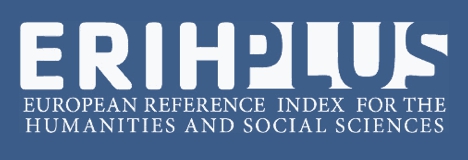APPLIED GEOGRAPHY AND STUDENT LEADERSHIP: THE INVESTIGATION OF NATURAL RESOURCES IN THE CONTEXT OF ELEMENTARY EDUCATION IN AREADO, SOUTH OF MINAS GERAIS
Abstract
This work presents an integrative pedagogical practice using technological tools with the objective of initiating an environmental education process with elementary school students in the municipality of Areado, in the State of Minas Gerais, through the geographical conception of natural resources, using theoretical research, fieldwork, and technology based on the students' reality, in the year 2016. The methodology used initially focused on a case study, valuing the students' prior knowledge, and subsequently proposed fieldwork, where they emphasized the search for environmental problems and the creation of audiovisual material discussing the problems found and proposing solutions to these issues. As a result, there was great involvement on the part of the students, in addition to critical and very enriching debates about the experience lived. The use of technological tools for conducting research proved effective, as it accentuated the students' creativity.
References
CARLOS, A. F. A. (Org.). A geografia na sala de aula. São Paulo: Contexto, 1999
_________________. O consumo do espaço. In CARLOS, Ana F.A. (Orgs.). Novos caminhos da geografia. São Paulo: Contexto,2001.
FREIRE, Paulo. Pedagogia do Oprimido. São Paulo: Paz & Terra, 1987, 184p.
_____________. Pedagogia da autonomia: saberes necessários a prática educativa. 18. ed. São Paulo: Paz & Terra, 2001, p.33.
GAJARDO, M. Pesquisa Participante na América Latina - Trad. PELLEGRINI, T., São Paulo, Brasiliense, 1986, 94p.
GUIMARÃES, M. Educação ambiental: no consenso um embate? Campinas, Papirus, 2000.
KONDER, L. O futuro da filosofia da práxis - o pensamento de Marx no século XXI. Rio de Janeiro: Paz e Terra, 1992.
KOZEL, S.; FILIZOLA, R. Didática da terra: o espaço vivido. São Paulo: FTD, 1996, p.37.
LÉVY, Pierre. Cibercultura. São Paulo: Ed. 34, 1999.
LIMA, Vanuzia Brito; ASSIS, Lenilton Francisco de. Mapeando alguns roteiros de trabalho de campo em Sobral (CE): uma contribuição ao ensino de Geografia. Revista da Casa de Geografia de Sobral. Sobral: v. 6/7, n. 1, 2004/2005. p.109-112.
MILARÉ, Édis. Direito do Ambiente. São Paulo: Revista dos Tribunais, 2011.
PERALTA, J. E.; RUIZ, J. R. Educação popular ambiental: Para uma pedagogia da apropriação do ambiente. In. LEFF, Enrique, coordenador. A complexidade ambiental. Tradução de Eliete Wolff: São Paulo Cortez, 2003.p. 241-281
PRENSKY, M.. Digital natives, digital immigrants. Disponível em:
REIGOTA, M. Desafios à educação ambiental escolar. In: JACOBI, P. et al. (orgs.). Educação, meio ambiente e cidadania: reflexões e experiências. São Paulo: SMA, 1998. p.43.
SANTOS, M. O espaço do cidadão. 4 ed. São Paulo: Nobel, 1998, p.126.
SUERTEGARAY, D. M. A. Debates entre as questões ambientais e sociais no urbano. In. CARLOS, Ana Fani Alessandri; LEMOS, Amália Inês Geraiges (Orgs). Dilemas urbanos: Novas abordagens sobre a cidade: São Paulo: Contexto, 2003.p.352-357.

This work is licensed under a Creative Commons Attribution-NonCommercial 4.0 International License.
Policy Proposal for Free Access Journals
Authors who publish in this journal agree to the following terms:
a. Authors retain the copyright and grant the journal the right of first publication, with the work simultaneously licensed under the Creative Commons Attribution License which allows the sharing of the work with acknowledgment of the authorship of the work and initial publication in this journal.
b. Authors are authorized to take additional contracts separately, for non-exclusive distribution of the version of the work published in this journal (eg publish in institutional repository or as a book chapter), with acknowledgment of authorship and initial publication in this journal.
c. Authors are allowed and encouraged to publish and distribute their work online (eg in institutional repositories or on their personal page) at any point before or during the editorial process, as this can generate productive changes, as well as increase the impact and The citation of published work (See The Effect of Free Access).





















